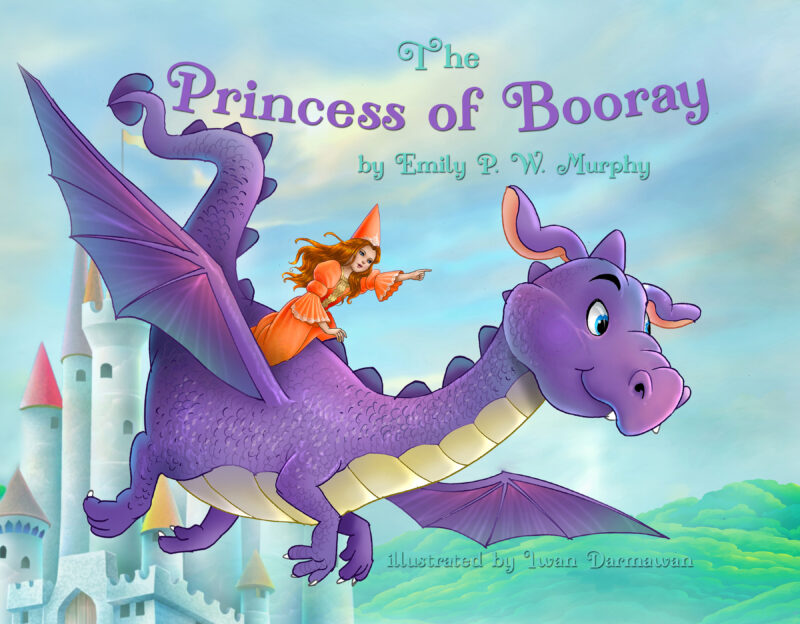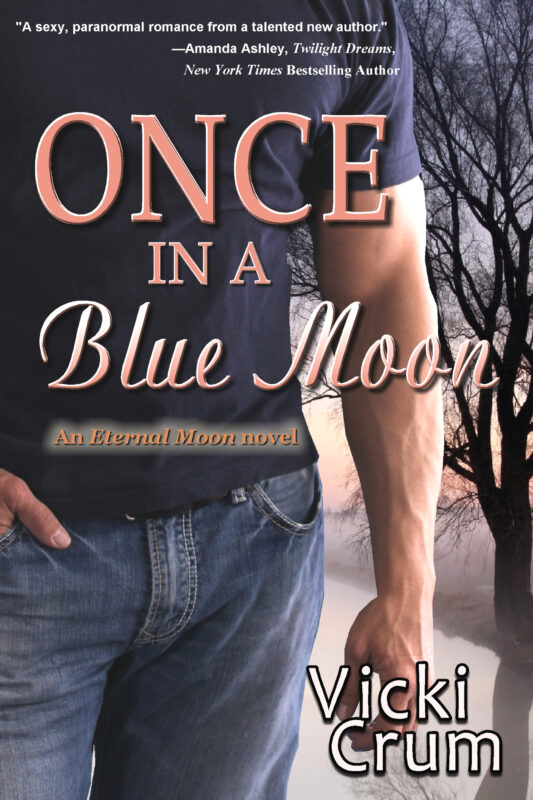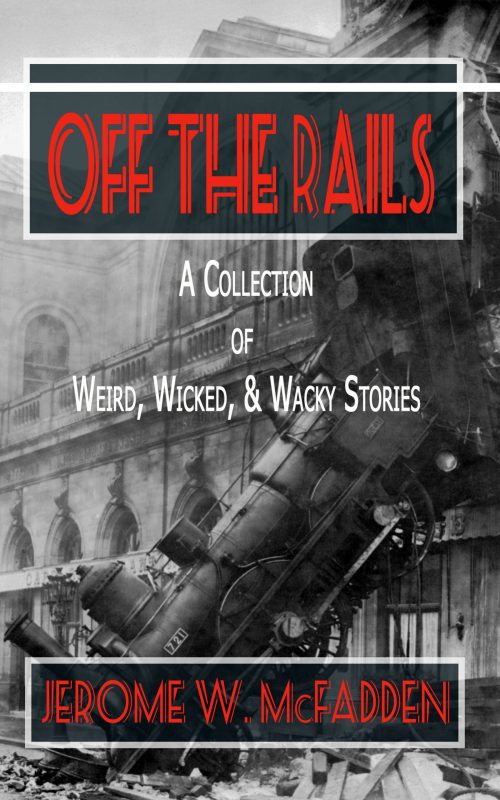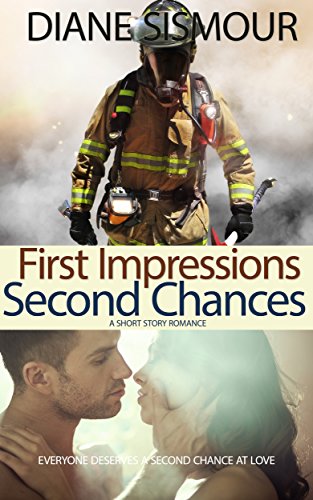A Surprising Mystery by Dianna Sinovic
December 30, 2020 by Dianna Sinovic in category Quill and Moss by Dianna Sinovic tagged as Isaac Asimov, mysteries, science fiction

My favorite books as a tween were solidly in the science fiction and adventure realms. My father introduced me to his favorite authors: Bradbury, Asimov, and Heinlein, and the public library helped me find others. I was astonished by the breadth of Asimov’s Foundation trilogy, a series of stories about a Galactic Empire that predated by several decades the evil empire created by George Lucas. (A TV series version of Foundation is due out in 2021.)
As an adult I moved down a different reading path, in part because of the various book clubs I joined. Most were interested in either literary classics or women’s fiction, neither of which almost never included science fiction.
But lately, I’ve returned to reading the genre—loving The Sparrow and its sequel, Children of God, for example. And I discovered something new about Isaac Asimov: He also wrote mysteries. At a virtual writers conference I attended this year, a presenter mentioned Tales of the Black Widowers, a collection of short stories by Asimov that Ellery Queen’s Mystery Magazine published in the 1970s. I found a used copy online and dug in.
The set-up seemed somewhat dated: This is a men’s-only club that meets monthly, and women are forbidden to attend. But the stories themselves are fun little mysteries, with one character (not giving anything away) who is particularly astute at solving the puzzling situations presented. I was delighted to find out that the Black Widowers has several sequels, the first of which not surprisingly is called More Tales of the Black Widowers.
This is the centennial year of Asimov’s birth, with only a few days until that ends (on Jan. 2). He was a prolific writer, author of hundreds of books and stories, as well as being a biochemist and professor.
Speaking of mysteries, it’s nearly time for the Bethlehem Writers Group’s annual short story contest, which opens Jan. 1, 2021. The contest theme is An Element of Mystery. So, sharpen your pencils and get busy crafting your version of the mystery story.

December Featured Author: Bethlehem Writers Group, LLC
December 29, 2020 by Bethlehem Writers Group in category Apples & Oranges by Marianne H. Donley, Contests, Featured Author of the Month tagged as #TheBWG, Bethlehem Writers Group, Bethlehem Writers Roundtable Short Story Award, Fur Feathers and Scales, new release, Short Story Award, The 2021 Short Story Award
About Bethlehem Writers Group, LLC
The Bethlehem Writers Group, LLC (BWG), is a community of mutually supportive fiction and nonfiction authors based in Bethlehem, Pennsylvania. The members are as different from each other as their stories. BWG also publishes quality fiction through their online literary journal, Bethlehem Writers Roundtable, and their award-winning A Sweet, Funny, and Strange Anthology series.

Each anthology has an overall theme—broadly interpreted—but includes a variety of genres. All but the first anthology include stories from the winner(s) of The Bethlehem Writers Short Story Award.
Their first anthology, A Christmas Sampler: Sweet, Funny, and Strange Holiday Tales (2009), won two Next Generation Indie Book Awards: Best Anthology and Best Short Fiction.
Released December 1, 2020, the latest title in A Sweet, Funny and Strange Anthology series is Fur, Feathers, and Scales: Sweet, Funny, and Strange Animal Tales.
About Fur, Feathers and Scales
The award-winning “Sweet, Funny, and Strange” series of anthologies from the Bethlehem Writers Group, continues with this collection of twenty-five tales about real, legendary, or imaginary animals. From snakes to ducks to unicorns, there are tales here to match any mood, provide a chuckle, or warm a heart.
Among our tales, Peter Barbour recounts a legend in “Why Bats Live in Caves,” Jerome W. McFadden asks the question of what animal to choose to be in “Recycled,” A. E. Decker shares an appreciation of cephalopods in “Tipping Point,” Ralph Hieb imagines an unconventional pet in “Buttons,” and Diane Sismour, in “Critter,” reveals that mules are not the only equines that can have a stubborn streak.
In addition, we are happy to present the winning stories from the 20 I 9 and 2020 Bethlehem Writers Roundtable Short Story Awards. Angela Albertson, our 20I9 winner, shares her heartfelt “Oranges and Roses,” and our 2020 winner, Brett Wolff, gives us a good laugh in “Hubbard Has a Fancy Bra.”
This eclectic assemblage of stories includes terrific tales from beloved BWG authors including Courtney Annicchiarico, Jeff Baird, Jodi Bogert, Marianne H. Donley, DT Krippene, Emily P. W. Murphy, Christopher D. Ochs, Dianna Sinovic, Kidd Wadsworth, Paul Weidknecht, Carol L. Wright, and Will Wright.
So cuddle up with your favorite pet-real or imaginary. No matter. You’ll find just the right story to share.
Next up for BWG


BWG is working on their Seventh anthology, An Element of Mystery: Sweet, Funny, and Strange Tales of Intrigue.
In connection with this anthology, they are hosting The Bethlehem Writers 2021 Short Story Award.
The 2021 Short Story Award will open on January 1, 2021. The theme will be An Element of Mystery (broadly interpreted).
BWG is seeking never-published short stories of 2,000 words or fewer. First Place will receive $250 and publication in their upcoming anthology: An Element of Mystery: Sweet, Funny, and Strange Tales of Intrigue or in Bethlehem Writers Roundtable.
The final judge of the 2021 Short Story Award is New York Times best-selling author Charlaine Harris.
Books from Bethlehem Writers Group, LLC

The Bethlehem Writers Group, LLC (BWG), founded in 2006, is a community of mutually supportive, fiction and nonfiction authors based in Bethlehem, Pennsylvania. The members are as different from each other as their stories, spanning a range of genres including: children’s, fantasy, humor, inspiration, literary, memoir, mystery, paranormal, romance, science fiction, women’s fiction, and young adult.
See the schedule of meetings and events here.
Giving Tragic Characters a Happy-Ever-After
December 28, 2020 by Alina K. Field in category Quarter Days by Alina K. Field tagged as #NewRelease, Fated Hearts, Macbeth, Regency romance, Tragic Characters in Classic Lit SeriesThe Tragic Characters in Literature Project
Greetings for the holiday season! This is the time for gift-giving, and I’m devoting this Quarter Days’ post to a unique gift-giving project I’m taking part in with a group of Regency Romance authors.
We’re taking some of those dark, down-on-their luck characters from literary fiction and giving them the Regency Romance treatment!
Officially:
With complete artistic license, and an abundance of hubris, a group of Regency romance authors are retelling some of the great stories of literature, setting them in Georgian England, and giving these tragic heroes and heroines a happily-ever-after.
I am not super well-read in tragic fiction, so I settled on a story I do know: Macbeth. The real Macbeth was a relatively successful (though bloody) ruler of Scotland for about ten years in the eleventh century. Shakespeare’s Macbeth and his lady–well, you probably know their story. They die!
What’s a Romance Author to do? I decided to follow Shakespeare’s example of adding and discarding facts and characters as required. As I plunged into planning, I quickly decided that the action would begin twenty years after Macbeth and his lady’s quest for title and power and their “demises”.
In my version, a failed lawsuit, allegations of unfaithfulness and a disastrous divorce sent Macbeth off to a bloody twenty-year war with France and his lady into a tailspin of depression. Older and wiser, they meet again in London in March 1815 during the worst of the Corn Riots, in a week that ends with the arrival of news that Bonaparte has escaped from Elba.
I’ve taken the liberty of reversing characterizations (after all, Foul is Fair, and Fair is Foul) and adding others to lighten the mood for our aging lovers. Writing this, I often had to wrest my hero back from the darkness of his story. Or, as my editor gently suggested, I had to “moderate his fatalism”.
Hah! It is 2020, isn’t it?
All-in-all, it was a fun story, requiring a deep dive into the Peninsular campaign, the Corn Riots, and best of all, Highland soldiers in kilts.
Release day for Fated Hearts is December 29, 2020, and it’s available for 99 cent preorder. It won’t be at that price for long, so if you’re interested, pick up your copy ASAP.
Here’s a bit about the story and the other books in the Tragic Characters in Classic Lit series.

Fated Hearts, A Love After All Retelling of the Scottish Play
Plagued by hellish memories and rattling visions of battle to come, a Scottish Baron returning from two decades at war meets the daughter he denied was his, and the wife he divorced, and learns that everything he’d believed to be true was a lie. What he can’t deny is that she’s the only woman he’s ever loved. They’re not the young lovers they once were, but when passion flares, it burns more hotly than ever it did in their youth.
They soon discover, it wasn’t fate that drove them apart, but a jealous enemy, who played on his youthful arrogance and her vulnerability. Now that old enemy has resurfaced, more treacherous than ever. When his lady falls into a trap, can he reach her in time to rescue this love that never died?
Other Books in this Series:
The Monster Within, The Monster Without
by Lindsay Downs (Frankenstein)
When bodies start turning up in Whitechapel, Miss Steen returns to London with Lord Cartwright and the Countess of Harlow as her chaperone to solve the murders. Little does she realize she will be introduced to the last person she wants to meet — and hunting down the murderers proves a lot more difficult than they had anticipated.
I Shot the Sheriff
by Regina Jeffers (Robin Hood)
William de Wendenal, the notorious Sheriff of Nottingham, has come to London, finally having wormed his way back into the good graces of the Royal family. Yet, not all of Society is prepared to forgive his former “supposed” transgressions, especially the Earl of Sherwood.
However, when de Wendenal is wounded in an attempt to protect Prince George from an assassin, he becomes caught up in a plot involving stolen artwork, kidnapping, murder, and seduction that brings him to Cheshire where he must willingly face a gun pointed directly at his chest and held by the one woman who stirs his soul, Miss Patience Busnick, the daughter of a man de Wendenal once escorted to prison.
The Colonel’s Spinster
by Audrey Harrison (Pride and Prejudice)
Colonel Fitzwilliam is a second son, often overshadowed by his titled, older brother and his cousin, Mr Darcy. Returning from Waterloo he knows it is time to find a wife with a healthy dowry, but he longs for a love match. Unfortunately for Fitzwilliam, love doesn’t put food on the table.
Miss Prudence Bamber has never known her mother’s family. A woman with her own mind and full life, she indulges her father’s wish to visit her long-lost relations. It turns out to be a trip she won’t forget in a hurry.
Two people looking for love, but challenged by pride, secrets and prejudice. Will they be able to overcome the odds to find their own happy ever after? Or, are they destined to remain separated by the constraints of society?
The Redemption of Heathcliff
by Alanna Lucas (Wuthering Heights)
Her wild ways tamed, Catherine Earnshaw has launched into London society. Only none of her marriage-mart suitors excite her because her heart still lies with another; whatever happened to Heathcliff, her childhood soulmate?
Markus Bell left Yorkshire to find his true identity and turn a fortune. Now the talk of the ton, he has Catherine in his sights, not to woo her but to seek revenge; he can’t forgive how she spurned him.
Catherine is puzzled where the gossip dogging her through the season comes from. Until she meets Markus, who’s as dark and devilishly handsome as her Heathcliff, and her world is turned upside down.
Coming in 2021:
The Company She Keeps, by Nancy Lawrence (Madame Bovary)
Captain Stanwick’s Bride, by Regina Jeffers (The Courtship of Miles Standish)
Glorious Obsession, by Louisa Cornell (Orpheus and Eurydice)
Wishing all of you a wonderful holiday season and a very happy, healthy, prosperous 2021!
I’ll be back in March for the next installment of my Quarter Days’ blog!
Snow Angel by Neetu
December 26, 2020 by Neetu Malik in category Poet's Day by Neetu Malik tagged as dreams, happy, Neetu, poetry, snow, snow angels
Snow Angel
I shaped you in the snow
the last time it descended
from the misty sky above
gentle flakes fluttered
settled thickly upon barren earth—
forming soft cloud comfort
I carved a dream
with my happy soul, smiling,
my eyes searched the universe
there were no stars that night–
just a crystalline radiance, in which
I molded the dream.
© Neetu Malik
Some of Neetu’s Books
Happy Happy Holidays
December 25, 2020 by marianne h donley in category Apples & Oranges by Marianne H. Donley tagged as 1950s, Holiday Music, holidays, Janet Elizabeth Lynn, Will Zeilinger
Happy Holidays from everyone at A Slice of Orange. We hope you day is calm, stress, and drama free.
To help with that, please enjoy this repeat column Janet Lynn and Will Zeilinger wrote for the 2018 Holidays.
Vintage 1950s Holiday Music
by
Janet Elizabeth Lynn
&
Will Zeilinger
I thought it would be nice to listen to some of the music that we still hear during the Christmas Holidays. I’ve included the links for your “waltz down memory lane”. Here are the top ten Christmas hits in the1950s.
(In chronological order of release)
 (There’s No Place Like) Home for the Holidays
(There’s No Place Like) Home for the Holidays
Home for the Holidays was written by Al Stillman and Robert Allen. It was a hit in 1955, but has also been recorded by numerous other artists. Listen on YouTube
 I Heard the Bells on Christmas Day
I Heard the Bells on Christmas Day
In 1956, Bing Crosby’s version was released as a single. Longfellow’s poem resulted when his personal peace was shaken. His second wife of 18 years was tragically burned in a fire, leaving him a widower of six children. Soon after, Longfellow’s oldest son, Charles Appleton Longfellow, joined the Union Army, he was severely wounded in the battle. He wrote the poem December,1863. The lyrics were by Johnny Marks and John Baptiste Calkin. Listen on YouTube
 Nuttin’ for Christmas
Nuttin’ for Christmas
Also known as “Nothing for Christmas,” Nuttin’ for Christmas was a novelty Christmas song written by Sid Tepper and Roy C. Bennett. It became a hit during the 1955 Christmas season when it appeared in Billboard’s pop charts by five different artists. The highest-charting of the five recordings was released by Art Mooney and His Orchestra, with six-year-old Barry Gordon as lead vocalist. Listen on YouTube
 Mary’s Boy Child
Mary’s Boy Child
Mary’s Boy Child a 1956 Christmas song, written by Jester Hairston. It is widely performed as a Christmas carol. Harry Belafonte heard the song being performed by a choir and sought permission to record it. It was recorded for his album An Evening with Belafonte. Listen on YouTube
 Jingle Bell Rock
Jingle Bell Rock
The song was written and performed by Bobby Helms in 1957 and has received frequent airplay during every Christmas season since. The song has hit the Billboard charts a record six times since its original release. Listen on YouTube
 Blue Christmas
Blue Christmas
A Blue Christmas was written by Billy Hayes and Jay W. Johnson and most famously performed by Elvis Presley. Elvis Presley cemented the status of Blue Christmas as a rock-and-roll holiday classic by recording it for his 1957 LP Elvis’ Christmas Album. Listen on YouTube
 Run Rudolph Run
Run Rudolph Run
Run Rudolph Run was written by Johnny Marks and Marvin Brodie. The song was first recorded by Berry in 1958 released as a single. Listen on YouTube
 Rockin’ Around the Christmas Tree
Rockin’ Around the Christmas Tree
Written by Johnny Marks and recorded by Brenda Lee in 1958, Rocking Around the Christmas Tree was a rockabilly/rock-and-roll flavored Christmas tune. While it was ignored in its first two seasons, the song hit #16 on the Billboard pop chart during the Christmas season of 1960. Eight million copies were sold the first thirty years. Listen on YouTube
 The Chipmunk Song
The Chipmunk Song
The Chipmunk Song (Christmas Don’t Be Late) is a Christmas song written by Ross Bagdasarian Sr. (a.k.a. David Seville) in 1958. Bagdasarian sang and recorded the song, varying the tape speeds to produce high-pitched “chipmunk” voices for the chipmunks: Alvin, Simon, and Theodore. Listen on YouTube
 The Little Drummer Boy
The Little Drummer Boy
This song was originally called Carol of the Drums, a Czech folksong which Katherine Davis translated to English in 1941. When the Twentieth-Century Fox Records label contracted Simeone to make a Christmas album in 1958, he assembled a group he called The Harry Simeone Chorale and searched for recording material. Simeone changed the title to The Little Drummer Boy. Listen on YouTube
Affiliate Links
A Slice of Orange is an affiliate with some of the booksellers listed on this website, including Barnes & Nobel, Books A Million, iBooks, Kobo, and Smashwords. This means A Slice of Orange may earn a small advertising fee from sales made through the links used on this website. There are reminders of these affiliate links on the pages for individual books.
Search A Slice of Orange
Find a Column
Archives
Featured Books
THE PRINCESS OF BOORAY
You would expect the life of a princess to be full of delight . . .
More info →OFF THE RAILS: A Collection of Weird, Wicked, & Wacky Stories
What happens if everything you thought you understood goes . . . OFF THE RAILS?
More info →FREYA Viking Glory Book Two
What happens when an immovable object meets an unstoppable force? Sparks fly and love blooms.
More info →FIRST IMPRESSIONS SECOND CHANGES
Everyone deserves a second change at love.
More info →Newsletter
Contributing Authors
Search A Slice of Orange
Find a Column
Archives
Authors in the Bookstore
- A. E. Decker
- A. J. Scudiere
- A.J. Sidransky
- Abby Collette
- Alanna Lucus
- Albert Marrin
- Alice Duncan
- Alina K. Field
- Alison Green Myers
- Andi Lawrencovna
- Andrew C Raiford
- Angela Pryce
- Aviva Vaughn
- Barbara Ankrum
- Bethlehem Writers Group, LLC
- Carol L. Wright
- Celeste Barclay
- Christina Alexandra
- Christopher D. Ochs
- Claire Davon
- Claire Naden
- Courtnee Turner Hoyle
- Courtney Annicchiarico
- D. Lieber
- Daniel V. Meier Jr.
- Debra Dixon
- Debra H. Goldstein
- Debra Holland
- Dee Ann Palmer
- Denise M. Colby
- Diane Benefiel
- Diane Sismour
- Dianna Sinovic
- DT Krippene
- E.B. Dawson
- Emilie Dallaire
- Emily Brightwell
- Emily PW Murphy
- Fae Rowen
- Faith L. Justice
- Frances Amati
- Geralyn Corcillo
- Glynnis Campbell
- Greg Jolley
- H. O. Charles
- Jaclyn Roché
- Jacqueline Diamond
- Janet Lynn and Will Zeilinger
- Jeff Baird
- Jenna Barwin
- Jenne Kern
- Jennifer D. Bokal
- Jennifer Lyon
- Jerome W. McFadden
- Jill Piscitello
- Jina Bacarr
- Jo A. Hiestand
- Jodi Bogert
- Jolina Petersheim
- Jonathan Maberry
- Joy Allyson
- Judy Duarte
- Justin Murphy
- Justine Davis
- Kat Martin
- Kidd Wadsworth
- Kitty Bucholtz
- Kristy Tate
- Larry Deibert
- Larry Hamilton
- Laura Drake
- Laurie Stevens
- Leslie Knowles
- Li-Ying Lundquist
- Linda Carroll-Bradd
- Linda Lappin
- Linda McLaughlin
- Linda O. Johnston
- Lisa Preston
- Lolo Paige
- Loran Holt
- Lyssa Kay Adams
- Madeline Ash
- Margarita Engle
- Marguerite Quantaine
- Marianne H. Donley
- Mary Castillo
- Maureen Klovers
- Megan Haskell
- Melanie Waterbury
- Melisa Rivero
- Melissa Chambers
- Melodie Winawer
- Meriam Wilhelm
- Mikel J. Wilson
- Mindy Neff
- Monica McCabe
- Nancy Brashear
- Neetu Malik
- Nikki Prince
- Once Upon Anthologies
- Paula Gail Benson
- Penny Reid
- Peter Barbour
- Priscilla Oliveras
- R. H. Kohno
- Rachel Hailey
- Ralph Hieb
- Ramcy Diek
- Ransom Stephens
- Rebecca Forster
- Renae Wrich
- Roxy Matthews
- Ryder Hunte Clancy
- Sally Paradysz
- Sheila Colón-Bagley
- Simone de Muñoz
- Sophie Barnes
- Susan Lynn Meyer
- Susan Squires
- T. D. Fox
- Tara C. Allred
- Tara Lain
- Tari Lynn Jewett
- Terri Osburn
- Tracy Reed
- Vera Jane Cook
- Vicki Crum
- Writing Something Romantic
Affiliate Links
A Slice of Orange is an affiliate with some of the booksellers listed on this website, including Barnes & Nobel, Books A Million, iBooks, Kobo, and Smashwords. This means A Slice of Orange may earn a small advertising fee from sales made through the links used on this website. There are reminders of these affiliate links on the pages for individual books.
































































